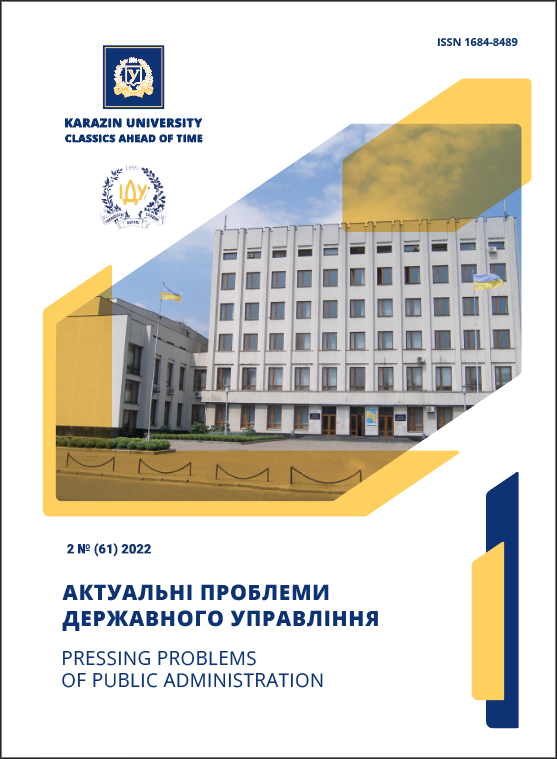Закордонний досвід державного регулювання поширення недостовірної інформації у медіапросторі
Анотація
У статті досліджено, шляхом вивчення міжнародного досвіду, необхідність регулювання поширення інформації у медіапросторі. Обумовлена така необхідність безперервним інформаційним навантаженням суспільства. Громадяни дедалі більше активно використовують соціальні мережі, відеоплатформи та медіапростір як повноцінний засіб масової інформації, а інформацію, отриману таким шляхом розцінюють як правдиву. Визначено, що суспільний резонанс викликає інформація, яка стосується публічної особи, оскільки така інформація викликає суспільний інтерес, а якщо така інформація має негативний характер – викликає суспільний резонанс.
У процесі дослідження встановлено, що національні та європейські суди, розглядаючи справи про захист честі, гідності та ділової репутації відносно публічних осіб, напрацювали певні висновки, які є обов’язковими при розгляді аналогічних справ.
Встановлено, що особисті немайнові права публічної особи (до яких відносять право на повагу до честі, гідності та ділової репутації) - обмежено, але не виключено. З’ясовано, на прикладі таких держав як Німеччина, Норвегія, Франція та Швеція, що при регулюванні суспільних відносин існує практика виділення публічної особи як спеціального суб’єкта.
Досліджено проблематику потенціалу права на свободу вираження поглядів в умовах функціонування глобальної мережі Інтернет, разом з необхідністю вчасно врегулювати такі суспільні відносини в мережі Інтернет задля захисту права інших осіб на повагу до їх честі, гідності та ділової репутації.
З метою дослідження іноземного досвіду щодо боротьби з протидією поширення недостовірної інформації через мережу Інтернет, автором було проаналізовано досвід таких країн як Німеччина, Франція, Китай, Єгипет та Філіппіни. З’ясовано та встановлено важливість і необхідність контролю за дотриманням стандартів етики у мережі Інтернет в цілому та публічних осіб зокрема.
Були сформульовані рекомендації, щодо врегулювання суспільних відносин, задля зниження рівня поширення недостовірної інформації у медіапросторі відносно публічних осіб.
З прийняттям відповідних законодавчих змін, проблематика поширення недостовірної інформації у медіапросторі відносно публічних осіб можуть бути комплексно вирішена, а відповідні відносини – вчасно врегульовані.
Завантаження
Посилання
Benedek, V. and Ketteman, M. (2013). Svoboda vyrazhennia pohliadiv ta Internet. Vydavnytstvo Rady Yevropy. Strasbourg Cedex. France [in Ukrainian].
The Law of China “Cyber security law”: The National People’s Congress of China (2016). URL: http://en.npc.gov.cn.cdurl.cn/2015-07/10/c_678096.html (accessed: 28.10.2022) [in Ukrainian].
Judgment in the case “Stoll v. Switzerland”: European court of human rights (2007). URL: https://hudoc.echr.coe.int/eng?i=001-83870 (accessed: 28.10.2022) [in Ukrainian].
Judgment in the case “Axel Springer Ag v. Germany”: European court of human rights (2012). URL: https://hudoc.echr.coe.int/ukr?i=001-109034 (accessed: 28.10.2022) [in Ukrainian].
Judgment in the case “Gazeta Ukraina-Tsentr v. Ukraine”: European court of human rights (2010). URL: https://hudoc.echr.coe.int/ukr?i=001-171836 (accessed: 28.10.2022) [in Ukrainian].
Judgment in the case “Karpyuk and others v. Ukraine”: European court of human rights (2016). URL: https://hudoc.echr.coe.int/ukr?i=001-192476 (accessed: 28.10.2022) [in Ukrainian].
Judgment n the case “Lingens v. Austria”: European court of human rights (1986). URL: https://hudoc.echr.coe.int/ukr?i=001-57523 (accessed: 28.10.2022) [in Ukrainian].
Judgment in the case “Lyashko v. Ukraine”: European court of human rights (2006). URL: https://hudoc.echr.coe.int/ukr?i=001-125880 (accessed: 28.10.2022) [in Ukrainian].
Judgment in the case “Von Hannover v. Germany”: European court of human rights (2004). URL: https://zakon.rada.gov.ua/laws/show/980_324#Text (accessed: 28.10.2022) [in Ukrainian].
Judgment in the case “Editorial board of Pravoye delo and Shtekel v. Ukraine”: European court of human rights (2011). URL: https://hudoc.echr.coe.int/eng?i=001-104685 (accessed: 28.10.2022) [in Ukrainian].
Judgment in the case “Thorgeir Thorgeirson v. Iceland”: European court of human rights (1992). URL: https://hudoc.echr.coe.int/ukr?i=001-57795 (accessed: 28.10.2022) [in Ukrainian].
Judgment in the case “Handyside v. the United Kingdom”: European court of human rights (1976). URL: https://hudoc.echr.coe.int/ukr?i=001-57499 (accessed: 28.10.2022) [in Ukrainian].
Telychko, O.A., Rekun V.A. (2021). Responsibility for diffamation in the media space in international and domestic law. Yurydychnyi naukovyi elektronnyi zhurnal, 7, 211–214. DOI: https://doi.org/10.32782/2524-0374/2021-7/53 [in Ukrainian].
Telychko, O.A., Rekun V.A. (2021). Responsibility for diffamation in the media space in international and domestic law. Yurydychnyi naukovyi elektronnyi zhurnal, 7, 213. DOI: https://doi.org/10.32782/2524-0374/2021-7/53 [in Ukrainian].
Iurydychna entsyklopediia: u 6 t. (1999). Red. kol.: Shemshuchenko, Yu.S. (hol. redkol.) ta in. Kyiv: Ukr. entsykl., 1998. T. 2 : D–I. [in Ukrainian].
An act penalizing the malicious distribution of fake news and other related violations. US Senate. 2017. URL: https://www.senate.gov.ph/lisdata/2624822593.pdf.
Cuceranu D. (2008). Aspects of regulating freedom of expression on the Internet. Intersentia.
Egypt internet: Sisi ratifies law tightening control over websites. BBC. 2018. 18.08. URL: https://www.bbc.com/news/world-middleeast-45237171
Etzold, M. (2017). Facebook attackiert Heiko Maas. Wirtschaftswoche. 28.05. URL: https://www.wiwo.de/politik/deutschland/widerstand gegen-facebook-gesetz-facebook-attackiert-heiko-maas/19861686.html
Human Rights Council Resolution 12/16 (02.10.2009). Resolution 13/24 (26/03/2010). Resolution 20/8 (05.06.2012).
La Rue F. (16/05/2011). Report of the Special Rapporteur on the promotion and protection of the right of freedom of opinion and expression, UN Doc. A/HRC/17/27, 25.
Löschung von strafbaren Hasskommentaren durch soziale Netzwerke weiterhin nicht ausreichend. BMJV. 2017. 17.03. URL: https://www.bmjv.de/SharedDocs/Pressemitteilungen/DE/2017/03142017_Monitoring_SozialeNetzwerke.html.
Mueller, Milton L. (2010). Networks and states, the global politics of Internet governance. MIT Press.
UNGA (10.08.2011). Report of the Special Rapporteur on the promotion and protection of the right of freedom of opinion and expression, A/66/290, 18.
White A. (2013). Who should follow journalism ethical standards in the digital era? OSCE. The representative on Freedom of the Media. Vienna. 63–69.

